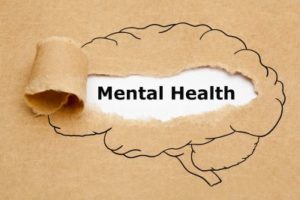
Or, you could be someone who has a variety of different symptoms – emotional, mental and physical. You do a quick Internet search and find your symptoms don’t align with any one disorder. Instead, they point to several mental illnesses.
Is it possible to have more than one mental disorder or illness at the same time?
Yes, according to the National Institute of Mental Health. The organization found, in a 12-month period, almost 50 percent of adults in the United States with any psychiatric disorder had two or more disorders.
Psychology Today estimated that 7.9 million of U.S. adults live with more than one mental disorder. The co-existence of two or more disorders is called co-occurring disorders or comorbidity.
Depression and Anxiety—and More
According to the Primary Care Companion to the Journal of Clinical Psychiatry, 10 to 20 percent of adults annually will visit their primary care physician “during an episode of mental illness (although frequently not because of the episode). Depression and anxiety disorders contribute to the majority of those visits. Among patients in the community who meet criteria for major depression, approximately 50 percent are also suffering from an anxiety disorder.”
Anxiety disorder isn’t the only mental illness to coexist with depression. Approximately 15 to 30 percent of people with major depression have panic attacks, according to Mental Health America.

The article indicates that these disorders “could be different manifestations of the same underlying disorder.” The reason this work is important is that it could change how we look at and treat mental illnesses.
Managing Multiple Mental Illnesses
If you are diagnosed with more than one mental illness, the first step is working with your healthcare provider.
A provider may want you to try several therapies – potentially, a combination of medication, Cognitive Behavioral Therapy (CBT), support group therapy, high-impact cardio exercise, yoga and/or meditation.
It’s important to know that there’s no one treatment plan that can be applied to every patient. The disorders affect each patient differently. Plus, the combination and degree of disorders can vary in each patient.
Medications may work differently in each patient due to their unique genetic composition and ability to breakdown medications. For non-medication therapies, support group therapy may work for one patient, while exercise could be the best medicine for another. As a result, your healthcare provider must conduct a review of your mental, spiritual and physical health to develop a tailored treatment plan that works best for you.
If you aren’t sure where to get started, Psychology Today offers a resource tool that allows you to find a treatment center that can help with co-occurring disorders. You can find visit the resource here: https://treatment.psychologytoday.com/rms/.
With the right combination of therapies to help manage multiple disorders, you can get the help you need to ensure you are on the road to mental wellness.
Our articles are for informational purposes only and are reviewed by our Medical Information team, which includes PharmDs, MDs, and PhDs. Do not make any changes to your current medications or dosing without consulting your healthcare provider.
The GeneSight test must be ordered by and used only in consultation with a healthcare provider who can prescribe medications. As with all genetic tests, the GeneSight test results have limitations and do not constitute medical advice. The test results are designed to be just one part of a larger, complete patient assessment, which would include proper diagnosis and consideration of your medical history, other medications you may be taking, your family history, and other factors.
If you are a healthcare provider and interested in learning more about the GeneSight test, please contact us at 855.891.9415. If you are a patient, please talk with your doctor to see if the GeneSight test may be helpful.





